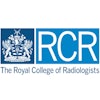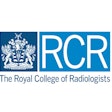The Royal College of Radiologists (RCR) has endorsed a report encouraging greater involvement and oversight by National Health Service (NHS) England and NHS Improvement to reduce waiting times and improve care for cancer patients.
The RCR's statement comes in the wake of a report on cancer care in the U.K. indicating that fewer than half of NHS trusts and foundation trusts meet the standard of an 18-week waiting time for elective treatment, and only 38% meet the 62-day standard from referral to treatment for cancer patients. In addition, the waiting list for elective care has increased from 2.7 million patients in March 2013 to 4.2 million patents in November 2018.
"Waiting times targets are hugely important and should act as a driver to ensure all patients receive high quality, consistent care," said Dr. Nicola Strickland, RCR president, in a statement. "But we know many hospitals and cancer centers are struggling to meet them for want of more doctors and other healthcare workers, more capital investment in equipment and IT connectivity, and more support to implement innovative ways of working."
While timely diagnostic imaging is "fundamental to hospital care," many imaging services "are desperately understaffed," Strickland added. "Without investment to tackle the NHS' chronic shortage of consultant radiologists it is hard to imagine any improvement in waiting times, and patient care will suffer."
The RCR recommended that local healthcare providers receive more direction, investment, and support from the government, as the NHS moves toward integrated care systems and service networking. The "ultimate goal of 'place-based' tightly mapped care and networked support can only be realized with better IT connectivity, which will not materialize without centralized funding and oversight," she said.



















